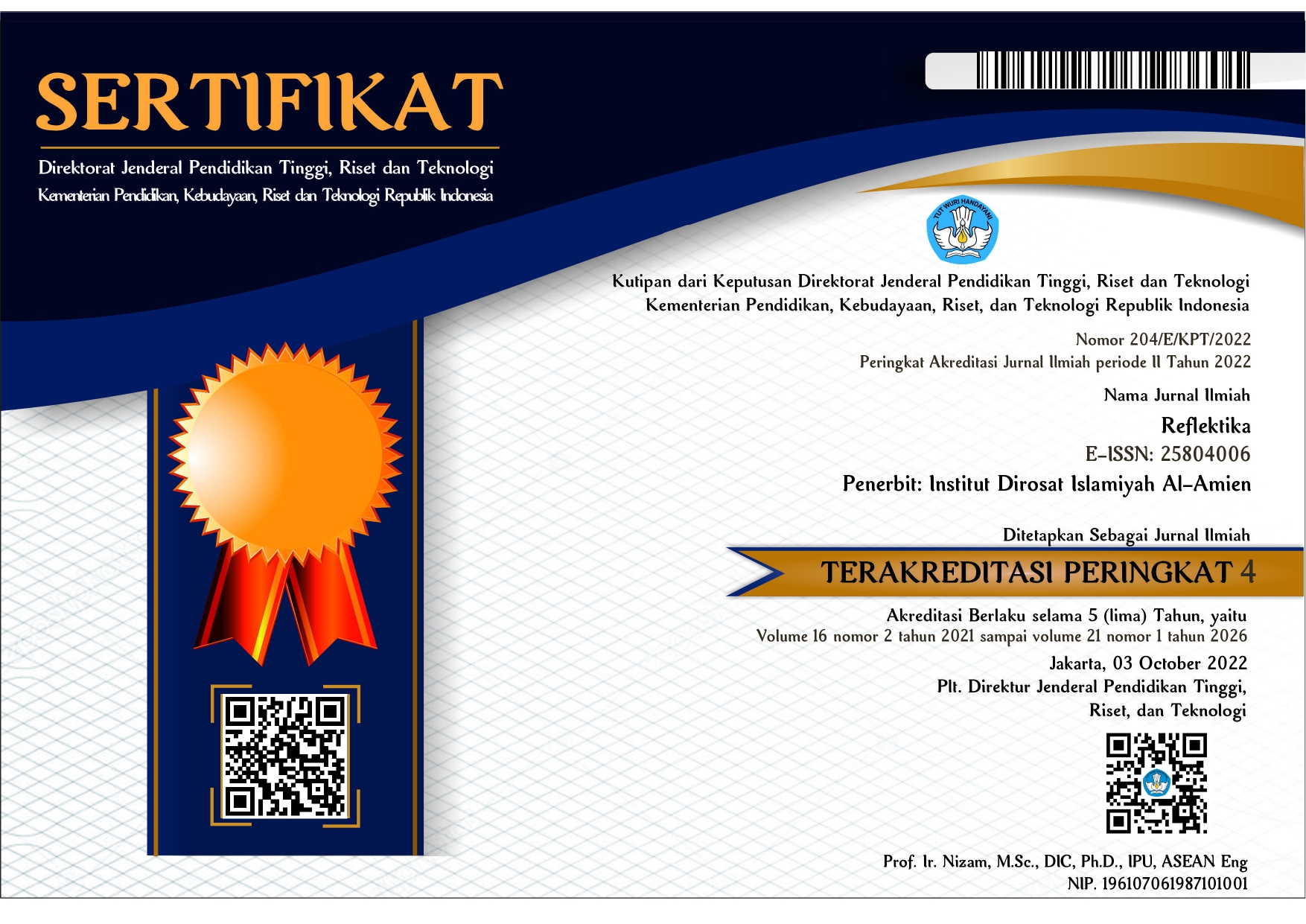HARMONIZING ISLAMIC VALUES WITH TECHNOLOGICAL ADVANCEMENTS FOR SELF-DEVELOPMENT
Abstract
The development of learning innovation in the era of "Industrial Revolution 4.0" will be closely related to educational technology. Both of them can be harmonized into Islamic values. One of them is that learning online or better known as online is something that must be done in the midst of the Covid 19 outbreak. However, many teaching staff are not yet ready, due to the phenomenon of being technologically illiterate or technologically illiterate. Educators who are technologically clueless can reduce the level of professional credibility in front of their students so that students sometimes tend to underestimate them. It can be seen that here lies the harmonization of Islamic values. Considering that students are more familiar with the world of technology and communication because it has become a nutritional intake in gaining knowledge. This phenomenon often occurs around us, including being found at one of the MTs educational institutions. Al-Irsyadiyah, whose address is Dermowebang Village, Sarirejo District, Lamongan Regency, there are several teachers who are said to still be technologically deficient in their learning. So it is still lacking in implementing Islamic values. Therefore, the focus point in this research is how teachers carry out the online learning process, especially for those who are technologically clueless and what impact this has on student learning outcomes and harmonization of Islamic values. With this article, the author hopes that inspiration and solutions will grow for teachers who experience the same problems.
Â
Keywords
References
Abdul Mujib, 2006. Ilmu pendidikan Islam, Jakarta: Kencana Prenada Media
Ahmad Warson Al Munawwir, 1984. Al Munawwir; Kamus Arab - Indonesia , Yogyakarta: Al Munawwir
Astuti, Etu Windi. Kepribadian Pendidik dalam Perspektif Al Qur’an, Jurnal Sepuluh, Vol.4, No.1, Januari 2011
Badan Pengembangan Dan Pembinaan Bahasa Kementerian Pendidikan Dan Kebudayaan. 2019. Kamus Besar Bahasa Indonesia (KBBI) Edisi V. Jakarta: Balai Pustaka
Bafadal, Ibrahim. 2005. Pengelola Perpustakaan Sekolah. Jakarta: Bumi. Aksara.
Clark, R.C. and Mayer.R.E. 2008. E-Learning and the Science of Instruction: Proven Guidelines for Consumer and Designers of Multimedia Learning, Second Edition. San Francisco: Johm Wiley and Sons, Inc.
Dahiya, S, Jaggi, S, Chaturvedi, K.K, Bhardwaj, A, Goyal, R.C, and Varghese, C. 2016. An eLearning System for Agricultural Education. Indian Research Journal of Extension Education, 12(5), pp.132-135
Departemen Pendidikan Nasional. Undang-Undang RI. Nomor: 20 Tahun 2003 tentang Sistem Pendidikan Nasional beserta Penjelasannya. Bandung: Fokusmedia
Glosarium Pusat Bahasa Departemen Pendidikan Nasional Republik Indonesia "Entri lema daring" diakses pada tanggal 2020-04-4
Jogiyanto, 2007. Sistem Informasi Keperilakuan. Edisi Revisi. Yogyakarta: Andi Offset
Robbin, Stephen P. 2007. Perilaku Organisasi Buku 1, Jakarta: Salemba Empat Rara, 2018. Tips Agar Tidak Gagap Teknologi di Era Digital. Dunia Fintech Jakarta
Waller, V. and Wilson, J. 2001. “A definition for e-learningâ€. The ODL QC Newsletter, pp. 1-2
DOI: 10.28944/reflektika.v18i2.1463
Refbacks
- There are currently no refbacks.


.png)

